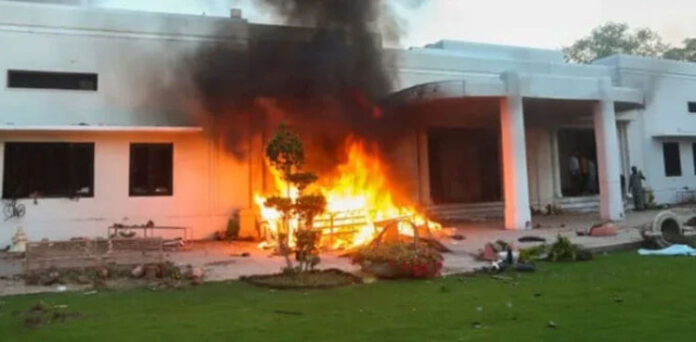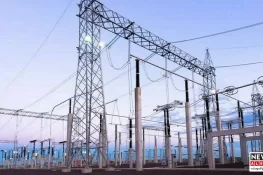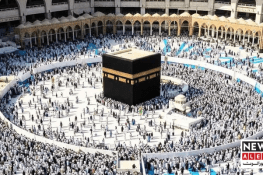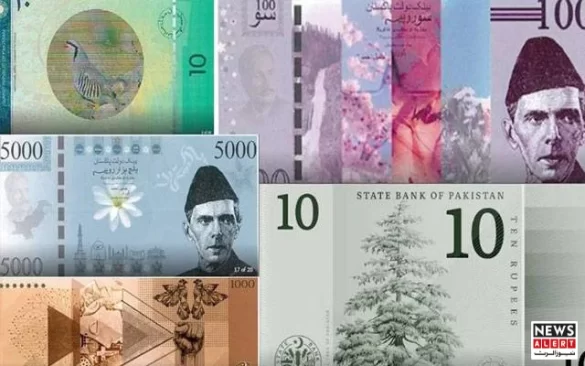Harsh Sentences for High-Profile Political Figures
An Anti-Terrorism Court (ATC) in Lahore has handed down 10-year prison sentences to several senior leaders of Pakistan Tehreek-e-Insaf (PTI) for their involvement in the violent protests of May 9, 2023. The court also ordered the seizure of their properties and imposed heavy fines.
Those convicted include Dr. Yasmin Rashid, former Punjab governor Omar Sarfraz Cheema, former Punjab minister Mian Mehmood-ur-Rasheed, and PTI leader Ejaz Chaudhry. Each has been fined 600,000 Pakistani rupees (approximately USD 2,150) in addition to their prison terms.
The verdict was delivered by Judge Manzar Ali Gul during proceedings held inside Lahore’s Kot Lakhpat Jail. The trial concerned two separate cases: the arson attack on Shadman police station and vandalism outside the Rahat Bakery.
Property Seizure and Arrest Orders
According to the court’s decision, the convicted leaders’ properties will be confiscated and placed under government control. Arrest warrants have been issued to the prison superintendent for formal execution of the sentences.
The ruling is among the most severe penalties handed to political leaders in connection with the May 9 unrest, which marked one of the most turbulent political episodes in Pakistan’s recent history.
Additional Convictions and Acquittals
In the same proceedings, PTI Punjab’s chief organizer Aliya Hamza and party activist Sanam Javed were sentenced to five years in prison each for their role in the Shadman arson case.
Overall, the court convicted 13 people and acquitted 12 in the Shadman case. In the Rahat Bakery incident, seven were found guilty while 10 were acquitted.
Former foreign minister Shah Mahmood Qureshi, a senior PTI figure, was acquitted in both cases.
Previous Sentences in Related Cases
This is not the first time PTI leaders have been penalized for their alleged role in the May 9 violence.
-
31 July 2024: The Faisalabad ATC sentenced Omar Ayub, Shibli Faraz, and Zartaj Gul to 10 years in prison. Former information minister Fawad Chaudhry was acquitted.
-
22 July 2024: A Lahore court sentenced Yasmin Rashid, Mehmood-ur-Rasheed, Ejaz Chaudhry, and Sarfraz Cheema to 10 years in another case. On the same day, a Sargodha court handed down 10-year sentences to 32 PTI leaders over protests in Mianwali.
Background: The May 9 Protests
The May 9 unrest erupted after former prime minister Imran Khan was arrested in the Al-Qadir Trust corruption case from the premises of Islamabad High Court. His detention triggered violent demonstrations by PTI supporters nationwide.
During the protests:
-
The ruling Pakistan Muslim League-Nawaz (PML-N) office in Lahore’s Model Town was set ablaze.
-
Government, military, and private properties were damaged.
-
The Lahore Corps Commander’s residence, known as Jinnah House, and the Pakistan Army’s General Headquarters (GHQ) in Rawalpindi were attacked.
At least eight people were killed and 290 injured across the country.
Nationwide Crackdown and Arrests
Following the violence, law enforcement agencies launched an extensive crackdown. Over 1,900 people were arrested, and criminal cases were filed against PTI’s top leadership. Authorities described the events as an “orchestrated attack” on state institutions.
The government has since emphasized that those found guilty will face strict legal consequences, arguing that the attacks went beyond political protest and amounted to targeted acts of vandalism and terrorism.
Political Fallout and Human Rights Concerns
The sentencing has deepened Pakistan’s already polarized political climate. PTI maintains that its leaders are being targeted in politically motivated cases aimed at dismantling the party ahead of future elections. In some instances, courts have offered temporary relief, such as the Islamabad High Court’s suspension of sentences for PTI workers in early 2025, which the party cites as evidence of unfair prosecutions.
Human rights organizations have voiced concern over the use of anti-terrorism laws against political opponents, warning that such measures risk undermining democratic freedoms. However, the government insists the charges are based on evidence and due legal process.














